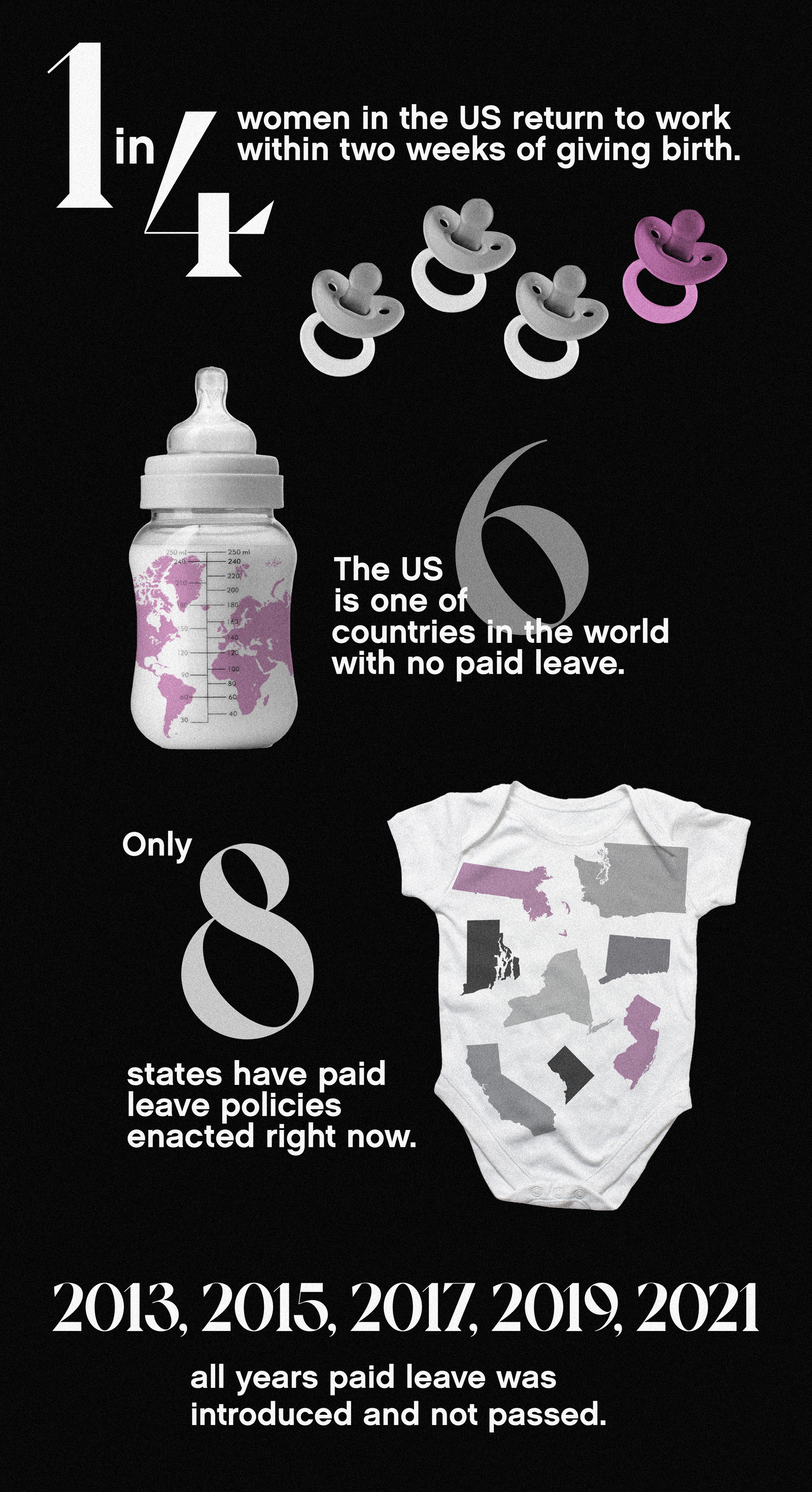
331 million people live in the United States.
167.6 million of them are women.
Of those, at least 71.75 million women are employed.
And on average, there are over 3.5 million births a year.
Yet despite these statistics, despite the millions of children being born in the country each year, despite the millions of parents who struggle through those early weeks of sleepless nights and sheer exhaustion, despite the many women and birthing people who have often gone through intense physical and emotional trauma during pregnancy and childbirth—tears or cuts around their vagina and in the perineum, long labors, C-sections, bleeding for weeks afterwards, infections, their children needing medical treatment, and more—there is no national paid-leave policy.
Whether you give birth, or have a child through adoption, surrogacy, sperm or egg donation, IVF, or more, if you work, you are afforded no federally supported paid time off.
Yes, if you are employed by an organization with 50 or more employees, the Family and Medical Leave Act of 1993 allows you to take 12 weeks off without losing your job, to recover from serious illness, or to care for a newborn, an adoptive child, or a family member with serious health conditions—but it is unpaid.
And that’s it. You have to get lucky, with an employer who happens to have a good company-based paid-leave policy. Or you’re not lucky. And either you earn enough to put aside money to live off during your maternity leave, or you don’t, and for each day that you are not at work, each day that you are physically recovering from childbirth, or exhausted from raising a newborn, or simply wanting to be at home and bonding with your child, you and your family fall into debt or eat away at savings.
This is a problem that threatens the entire construct of the family in this country. But also, make no mistake, it impacts women—and disproportionately women of color, women in low-income jobs, and women in service and domestic industries—the most. In 2019 only 19% of workers in the US had access to paid family leave via their employers. For the lowest quarter of wage earners, most of whom are women, this fell to 9%.
It is as depressing as it is unsurprising that one in four women living in the US returns to work within two weeks of giving birth. She will often be bleeding, swollen, sleep deprived, barely functioning—but in order to provide for her family, she will be working.
Follow the stories of Karina Garcia and Shukura Wells, two women who found themselves unable to take maternity leave and were back working, within a week for one of them and after about two weeks for the other.
And yet if you had a child in almost any other country in the world, including in the most oppressed, you would have access to paid leave. The United States is one of only six countries in the entire world, and the only high-income one of those six, that has no paid-leave policy. The others? The Marshall Islands, Micronesia, Tonga, Nauru, and Papua New Guinea.



